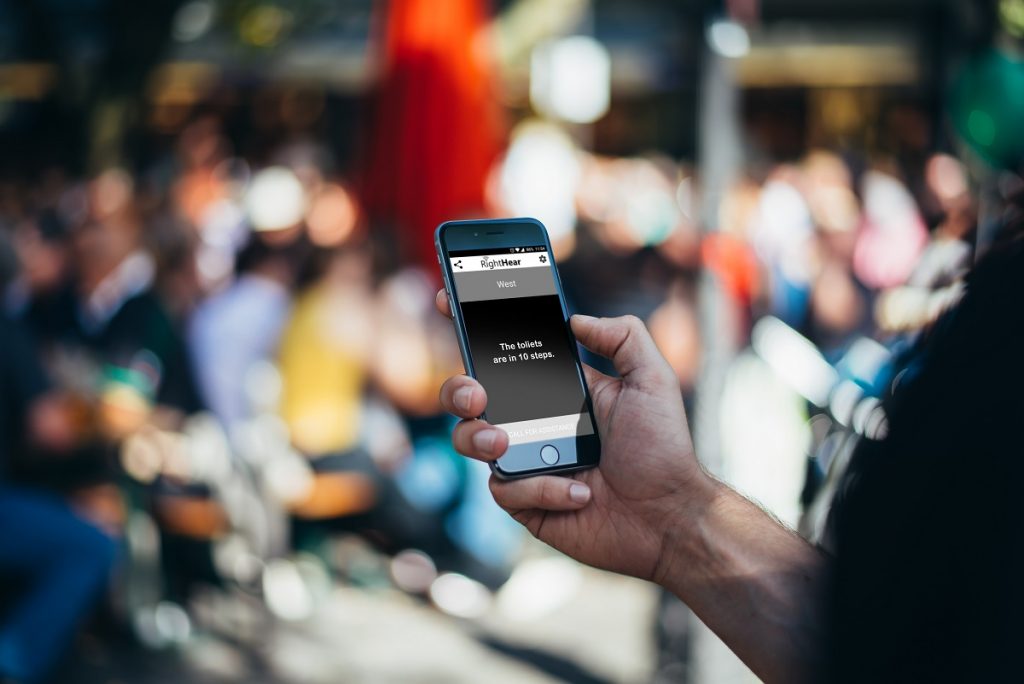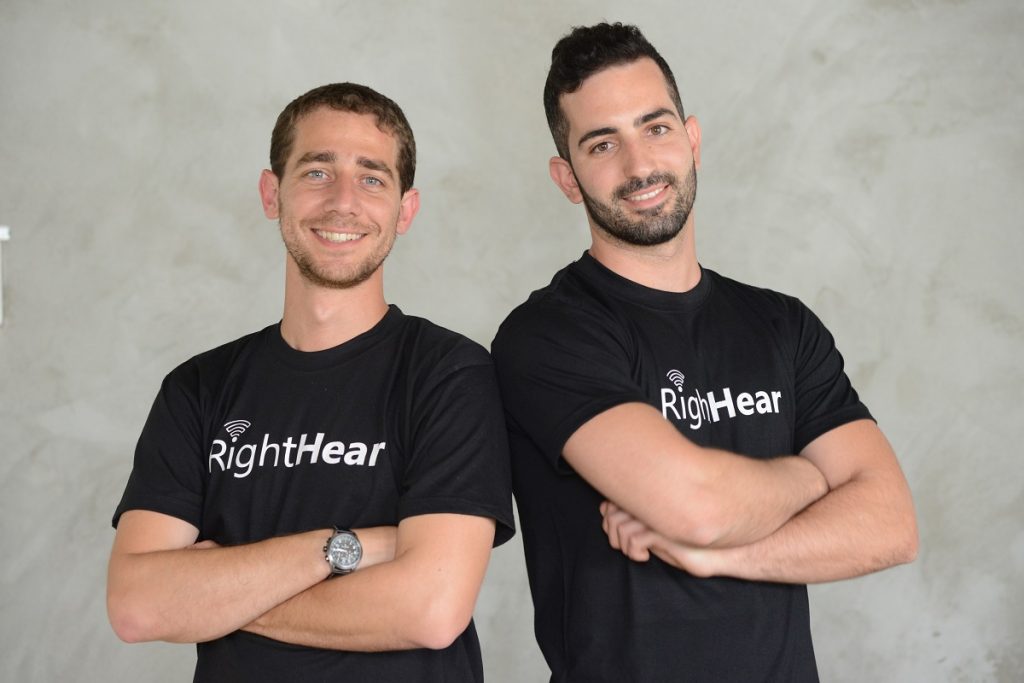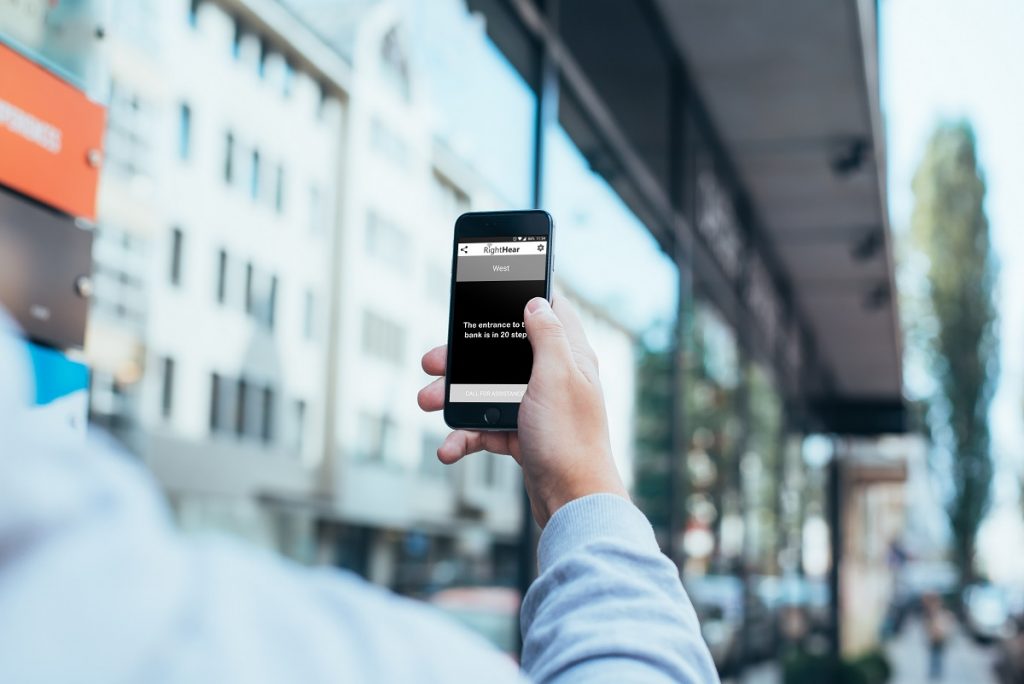Navigation apps have been a transformative part of our daily lives for over a decade. From Google Maps to the Israeli-founded GPS app Waze (acquired by Google in 2013) to lesser-known, specialty nav apps such as for hikers and bikers, these tools have become an inseparable part of getting around for many of us.
For those with blindness and visual impairments, navigation apps such as BlindSquare have been essential, providing more independence and an ability to move easier. But there are few navigation apps for indoor spaces and fewer still for those with visual impairments.

Israeli tech startup RightHear has been working to change that, one venue at a time. The Raanana-based company built a system for visually impaired users specifically for indoor places such as malls, hospitals, grocery stores, restaurants, museums, and universities.
SEE ALSO: Magic Eye: OrCam’s Revolutionary Tech Opens A Whole New World For The Visually Impaired
The system is comprised of three components: a phone app, Bluetooth-powered beacons (sensors) that are pre-installed at the location, and the management platform. The platform is available for subscribers (the venue) so they can edit the information for each location (for example, if an office changed floors or if there’s an area under renovation). Buildings and locations are pre-mapped and installed with RightHear sensors and the information is uploaded to the app which narrates the surroundings and navigates the user. The app tracks the movements of the user and issues real-time voice prompts and instructions warning of stairs ahead, for example, or if the sliding door in front of them is automatic.
“In a supermarket, for example, the app can navigate to the bakery section or the vegetable aisle. In a mall, it can take you to a particular store or area,” RightHear co-founder and CEO Idan Meir explained to NoCamels at a recent conference in Tel Aviv.
The app, which is available in nine languages for Android and iOS, can even call for assistance if necessary.
Currently, RightHear operates in over 1,000 locations worldwide. In Israel, these include McDonald’s restaurants, Azrieli malls, Tel Aviv University, Shufersal chains, Assuta Hospital, and Google Israel, among many others. The app is also available in locations in Europe, Canada, and the US. The startup’s newest client is the Marriott’ Renaissance Arlington Capital View Hotel in Washington, DC.
Meir tells NoCamels that the main focus for RightHear is expanding globally and becoming available in more locations in “English-speaking markets.”
Meir and his co-founder Gil Elgrably created RightHear in 2015 after working together on a different venture in the commerce sector where they were introduced to an indoor micro-positioning technology that provided coupons to shoppers in-store via their smartphone. They both saw the potential and decided to focus on a sector that aligned with their values and could improve lives.
Sign up for our free weekly newsletter
Subscribe“Saving someone 20 cents on a coffee isn’t a fulfilling feeling,” Meir says.
The RightHear app is free for users but venues pay for the system and the platform. Meir says that some businesses do it “out of obligation but also understand the ethical value of being accessible.”
“It’s also pure ROI [return on investment], as they can attract more people to their venues,” he explains.

The app is also useful for people with disabilities and difficulties such as dyslexia or agoraphobia, an anxiety disorder that can spark fear of unfamiliar places where one can feel trapped or unsafe, he points out.
“There are many situations where RightHear’s technology is valuable to everyone in unfamiliar, difficult-to-orient spaces. Many people who can find value in this include dyslexic people, who look at an index of all the offices [for example] and the letters and numbers can seem confusing,” Meir explains, adding that “language barriers are also a situation where this technology is useful.”
SEE ALSO: A Virtual Hospital, A Nav App For The Blind, An AR Microscope: Israel Showcases Digital Health Tech
Many RightHear users list the “feeling of independence and freedom, the call system feature, and being able to trust and rely on it the app” as the biggest positive influence on their lives, Meir tells NoCamels.
But the app doesn’t offer object recognition and to bridge that gap, RightHear entered a partnership with Be My Eyes, a free mobile app that connects blind and low-vision individuals with sighted volunteers and companies from all over the world through a live video call. As part of the agreement, Be My Eyes will be offered through the RightHear app, Meir says, allowing users to access a Be My Eyes volunteer on one platform.
“This is convenient and invaluable, as navigating and completing everyday tasks usually involve visual image recognition,” Meir says. For example, at the supermarket, RightHear can help find the section, maybe even the shelf, “but with Be My Eyes you will even be able to identify the item.”
Related posts

Editors’ & Readers’ Choice: 10 Favorite NoCamels Articles

Forward Facing: What Does The Future Hold For Israeli High-Tech?

Impact Innovation: Israeli Startups That Could Shape Our Future




Facebook comments